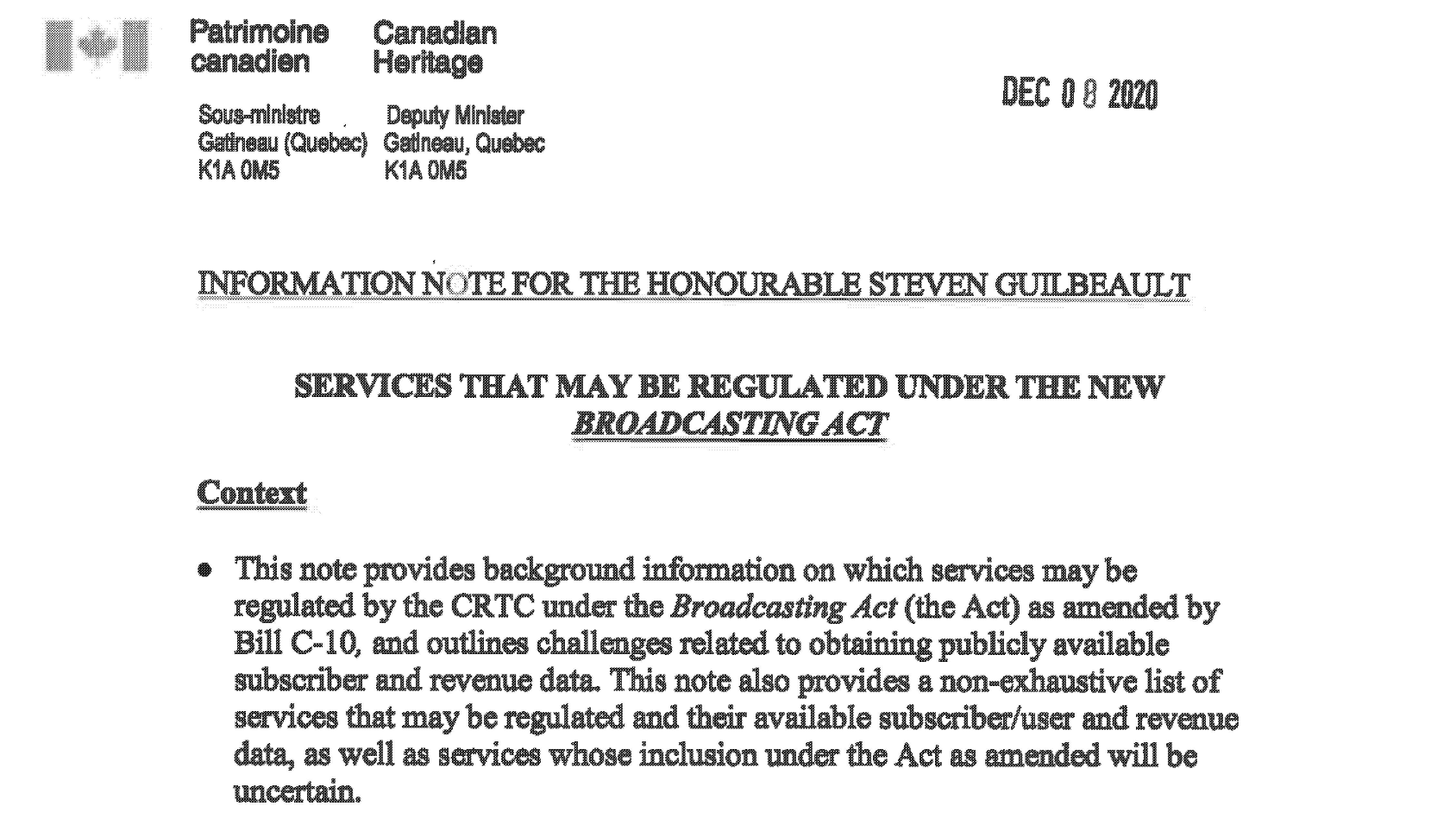While it took DFAIT until April 2008 to launch a public consultation on the proposed Anti-Counterfeiting Trade Agreement, according to documents I recently obtained under the Access to Information Act, there was an internal discussion paper on the treaty as early as January 2007, months before the first public announcement […]

Canadian Heritage Memorandum, December 8, 2020, ATIP A-2020-00498
Bill C-10
Anti-Counterfeiting Trade Agreement Moves Forward
The DFAIT consultation on the Anti-Counterfeiting Trade Agreement has still not concluded (you have until April 30th to file a submission), yet reports now indicate that the negotiations are moving forward at a rapid clip. The European Council of Ministers have reportedly given their approval to the treaty which will […]
DFAIT Launches Consultation on Anti-Counterfeiting Trade Agreement
Months after Australia consulted their citizens about even participating in the Anti-Counterfeiting Trade Agreement and weeks after the U.S. consulted their citizens on the same treaty, the Canadian government has finally decided to ask Canadians what they think. Better late than never – the ACTA is publicly pitched as formalization of international standards on counterfeiting, yet privately viewed as a behind closed doors attempt to ratchet up copyright laws. Indeed, according to a document I recently obtained under the Access to Information Act, Canadian Heritage officials referred to it as a Trade Agreement on Copyright Infringement.
It is difficult to provide meaningful feedback on a treaty that no one has publicly seen, but with some lobby groups hoping to use the treaty to increase ISP liability, force cross-border disclosure of ISP subscriber information, and further advance the cause of anti-circumvention legislation, there is reason for concern. For that reason, it is essential that Canadians take a few minutes to respond to the consultation, even if only to express concern about the lack of transparency and to urge the Canadian government to open the process to civil society groups and the broader public. The government recently committed to greater openness with international treaty ratification and consistent with that approach, Canadians should be permitted greater access to the negotiation process.
On a substantive level, Canadians might ask for some evidence that we need another treaty on this issue. We already have agreements through WIPO, WTO, Berne, etc. – what added value will come from this treaty that is not already addressed through the current treaty framework? Indeed, given that Canada is still grappling with the WIPO Internet treaties it seems premature to negotiate yet another treaty cover much of the same subject matter.
Canadian Heritage Minister Appears Before Committee on C-10
Canadian Heritage Minister Josee Verner appeared yesterday before a Senate committee on C-10, acknowledging that there are only two films (which she could not name) that would not have received funding over the past five years under the proposed plan to grant her discretion to deny tax credits for "offensive" […]
New Canadian Business IP Coalition on the Way
Sources indicate that there may be a new business IP coalition on the way, presumably to counter the Business Coalition for Balanced Copyright. The BCBC, which includes a who's who of telecommunications, Internet, broadcast, and retail companies, has called on the government to adopt a balanced approach that addresses fair […]






